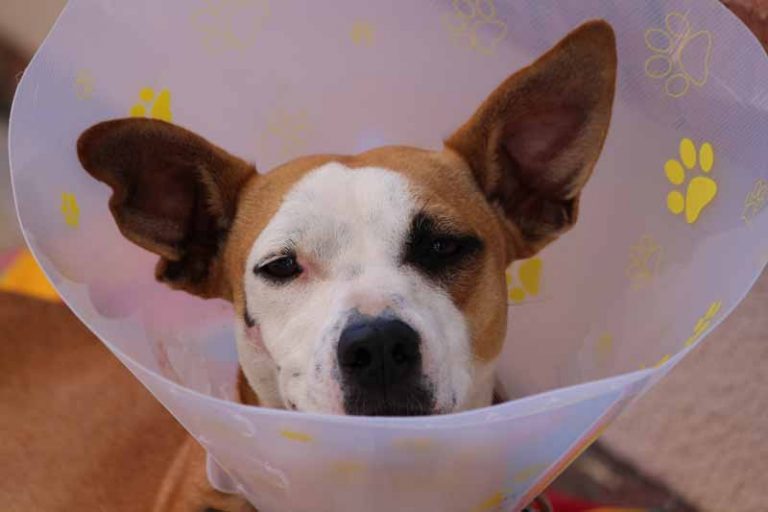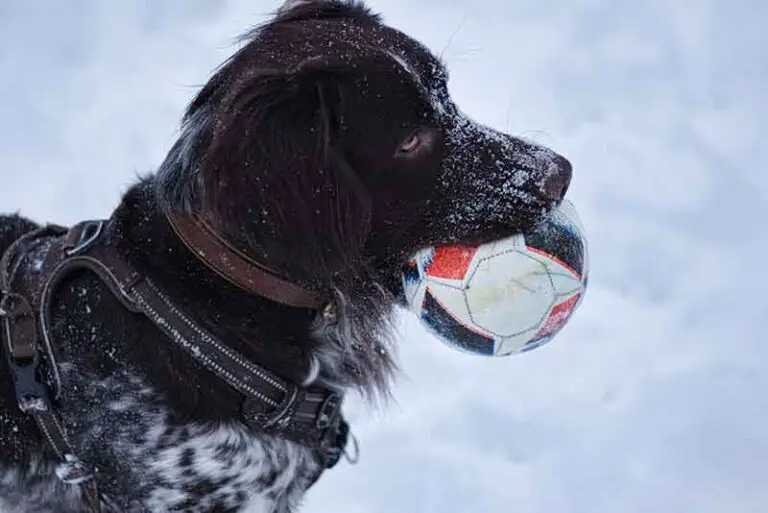How To Stop Submissive Urination In Dogs? Explained With Tips
Have you ever noticed that your pet dog urinates when someone talks to them, approaches them, or when a loud noise occurs? It is called submissive urination. Most dog owners ask us, ‘How to stop submissive urination in dogs?’. So, we thought about discussing it.
Dogs are emotional creatures and express their emotions through body language and gestures. If you bring home a new puppy, you might notice that it urinates often. It typically happens as a way of indicating emotions such as fear or anxiety, which we identify as submissive urination in dogs.
Puppies are highly vulnerable to emotions as they have minimal experience merging with humans; hence submissive urination is not bizarre among them. Still, this is not only limited to puppies; this can be seen among adult dogs as well.
Although most puppies overcome this as they grow older, some adult dogs still go through it. Through this article, you can understand this concern comprehensively and what actions a dog owner can take to stop it.
So, How to stop submissive urination in dogs? Submissive urination is a common way a dog reacts to a submissive action. In other words, if a dog is being assaulted, scolded, beaten, faces a traumatic experience, or even when they are overly excited, it makes them urinate submissively.
Some dogs naturally learn how to overcome this, but they often need proper guidance and training to avoid it. If your dog is submissively urinating, you should never be harsh to the dog. The training process might require some time, but you must do it patiently.
Teach the basic commands to the dog, be gentle, and build confidence within the dog. When they show progress, reward their good behavior. Submissive urination can only be eliminated through proper and consistent training.
Submissive urination is an uncontrollable occurrence among dogs that is primarily caused due to fear or anxiety. If your pet dog often faces this, it might bother you.
Although it tends to be uncontrollable, if you take the right actions, you can help your dog overcome this issue.
Why is my dog submissive peeing?
Submissive urination in dogs can happen due to several reasons. Out of them, the most common cause is fear. When your dog is feared by someone or something, its body responds to that emotion through submissive peeing.
As mentioned at the beginning, submissive urination is usual and often seen among puppies. Dogs are domesticated animals, yet it takes some time for them to fit into the new environment that they grow up in.
So when you get a newborn puppy, it will take time for them to socialize with you. Due to the lack of socialization and the vulnerability of emotions they get by being away from their mother and their litter, young dogs can be susceptible to things.
They could quickly get scared and often undergo submissive peeing. This habit usually outgrows as they mature; however, this can also be seen among many grown-up dogs.
Whether it’s a young dog or an adult dog, if you notice submissive peeing in them, below are some common reasons behind it.
- Fear
Fear is one of the typical reasons for submissive urination in dogs. Dogs may get feared of different things. It could be a person, an object, a sound, or an incident that raises fear in them.
So whenever the dog sees or experiences it, it triggers fear in them, and without control of their body, they might urinate as a physical response to the fear.
- Anxiety
Fear and anxiety might sound the same but fear is a response to a specific occurrence, whereas anxiety is a reaction to various emotions.
Sometimes the causes behind your dog’s fear and anxiety could overlap. They mostly get anxious due to strangers, loud noises, or separation. Anxiety also leads to submissive urination.
- Excitement
Some dogs tend to pee when they are excited, mostly puppies. Suppose your dog saw you after a long time; the emotions they get in such a scenario increase their adrenaline levels and indicate it by submissive urination.
Does submissive urination / peeing go away in dogs?
Now you might have a fair understanding of the reasons behind submissive urinating in a dog. Does this habit naturally go away? This question can be answered subjectively because while some dogs overcome this alone, others might not.
Submissive urination is a natural physical response that dogs indicate, and they usually do not have control over it. When your dog is scared, anxious, shy, or excited, they spontaneously react to it by peeing.
In simple words, even the dog does not have control over it. So how does this habit fade away? Submissive urination is something that you most likely should expect in young puppies.
However, when they grow up, as they get more exposure to humans and the new environment, they manage to avoid submissive urination.
Still, this might not be the case for every dog. Suppose your dog did not get proper training since the pup stage, and if they lack socialization, it will directly impact their personality.
Losing their confidence makes dogs easily scared of things, and submissive urination is common among such dogs.
Sometimes even though you train your dog well and raise them with affection and care, you might still notice submissive urination in them. That could be due to past trauma or some object, a person that causes fear in them.
As mentioned, fear is subjective, and we can’t precisely say what scares dogs, so if they encounter a new person or an incident, be vigilant of it.
Also, if you get an adult dog rather than a puppy, be aware of their past. If your dog is experiencing anxiety for some reason, you can notice submissive peeing in them, although they are adult dogs.
How long does submissive urination last in dogs?
As explained, most of the time, dogs get over submissive urination with their age. You can notice this often in young dogs, which is normal, but as they grow, they overcome it.
We cannot pinpoint an exact age when this would stop. However, when a dog reaches the age of a year, they outgrow submissive urination. Remember that there are exceptions too.
While some dogs get rid of this naturally when they reach one year or above, others may take more time than that.
How to stop submissive urination in dogs?
Not all dogs have the capability to leave behind submissive urination on their own. Some dogs learn to avoid it with age, but some find it difficult. Such dogs need proper training to overcome it.
The influence a dog gets through their masters directly impacts its personality and behavior. Owners can help dogs eliminate their fears and anxiety and boost their confidence.
A happy-minded dog naturally learns to grow submissive urination out. So below are some easy tactics to avoid submissive urination in your dog.
- Introduce them to new people / things slowly
You should never rush them to do things because you need your dog to stop submissive urination. Most of the dogs indicate submissive urination around strangers.
So if a stranger attempt to talk to your dog and if the dog pees, do not let the stranger come close to them and do not force the dog to be friends with them.
It is also essential to avoid strangers having direct eye contact with the dog. Let the dog get along if the dog gets comfortable with some people.
Slowly expose them to new people—the same applies to new experiences. For instance, if your dog is hesitant to walk a new route, do not force it; train slowly until the dog feels comfortable with it.
- Use positive reinforcement methods
Submissive urination in dogs might sometimes annoy you, but you should never scold or punish the dog for it. If you do so, it will make the dog feel more uncomfortable.
Always try to use positive methods to train the dog. If the dog responds well to commands and behaves well, reward and praise their good behavior.
Such positive reinforcement techniques help build more confidence in the dog, eventually address their fears, and overcome submissive peeing.
- House Train the dog
When properly house train your dog, it also helps avoid submissive urination. When the dog is well house-trained, they know when and where to pee.
Take them on walks early in the morning and after the final meal for the day, and train them to do their business during that walks.
If the dog pees inside the house following a submissive action, do not yell at them; clean it without getting mad. Step by step, train them not to do it.
Final thoughts on stopping submissive urination in dogs
Submissive urination is a physical response that canines indicate following a submissive action or a situation.
Most dogs undergo submissive urination when scared, anxious, shy, or excited. While this is a common concern among puppies, they learn to overcome this as they grow up.
However, some adult dogs struggle to overcome submissive peeing for many reasons. If your dog faces this issue, you have to train them patiently.
Take things slow and build confidence in your dog; eventually, they will learn to outgrow this behavior.
Thank you for reading this post. Stay tuned with Jack Russell Owner for more interesting posts about your favorite dog breed.








